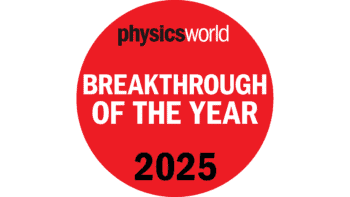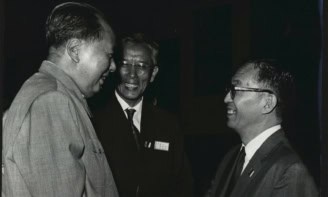Mark Buchanan reviews Why Information Grows: the Evolution of Order, from Atoms to Economies by César Hidalgo

Why are some nations wealthier than others? What, precisely, does it even mean for a nation to be wealthy? And why, as a matter of practical and political importance, do some nations become wealthier more quickly than others? If we ask why a crystal grows in solution, or study how a bacterial colony grows in a sugar medium, it’s clear that the answers come down to physics – to matters of entropy and order, of information and organization. Yet such concepts, oddly enough, rarely play a role in economic analysis.
Traditionally, when judging the wealth of a nation, or assessing its growth potential, economists have looked to a handful of aggregate indicators – things like gross domestic product (GDP), total resources, levels of education and so on. In predicting future growth they’ve done much the same, by looking at past growth, debt burden, the flexibility of the labour market and the quality of government. The reasons why they took this approach are understandable: economic systems are complex, so it is important to simplify and reduce the analysis.
César Hidalgo is a physicist who thinks this situation should change, and that economists should take concepts such as information, order and organization much more seriously. He asserts that these physics-inspired notions hold the key to understanding the origins of wealth and economic growth in a deeper way, and as director of the Macro Connections group at the Massachusetts Institute of Technology Media Lab, he leads researchers using large, modern data to better understand the networks of people and technology that bind our global world together. His new book, Why Information Grows, offers an impassioned argument for the advantages of an information-centric view of economic growth, and for understanding the different capacities of nations to provide solutions to human problems.
The trouble with the traditional approach, Hidalgo argues, is that it misses most of what is important in determining both the wealth of a nation and its potential to grow further. Economies aren’t just aggregates. They’re networks of interacting people and firms, of individuals and groups with highly specific skills and capabilities. Economies, in his vision, are like systems of distributed computers, and what such systems can accomplish depends on fine details of the diversity of skills they possess, and how these skills fit together to create the capacity to get things done, whether it be growing and exporting vegetables or producing high-quality jet engines and consumer electronics.
Understanding wealth and how it grows, he argues, requires thinking deeply and in very specific terms about how knowledge and practical know-how spread from one place to another, and also why they often fail to spread. You may wonder, for example, as many economists have, why the sophistication of modern manufacturing – in the aerospace industry, for example – can’t simply be transplanted from developed nations to less developed ones, to spur economic growth. If the knowledge and know-how exist in one place, surely it is merely a question of transferring it elsewhere? But as Hidalgo points out, the barrier to doing so is actually immense, as this knowledge isn’t actually held in any single brain or even any single company. A nation’s ability to produce quality aerospace products depends on a distributed network of complementary skills, know-how, practices, habits, ideas and resources – and these are held in many brains, in many places, so dispersed that perhaps no-one understands it completely.
The chances of replicating an industry therefore depend strongly on having many of the prerequisite skills, knowledge and capabilities in the new setting. There is a natural tendency, as Hidalgo argues, for industries to emerge in places that already have related industries. Economic growth, then, isn’t just something to transplant, but demands growth in a more organic sense – with new capabilities being realized only when they can build on an existing framework.
Why Information Grows explores how this idea has been developed in research over the past decade by Hidalgo and his colleagues. Its organizing vision is one in which economic advance, and greater wealth, depend ultimately on economic complexity, meaning the possession of a great diversity of valuable skills. Much research has therefore aimed to measure such complexity. The most obvious idea is that the overall diversity of products a nation produces might reflect its capabilities and wealth, but this isn’t quite true. Getting a better measure of economic complexity requires looking at not only the diversity of products a nation produces, but also the sophistication of those products, which can be measured by how few other nations produce them. Many nations, for example, produce fruits and garments, while only a few produce advanced electronics or aerospace products. Out of this mix, in 2009 Hidalgo and his colleague Ricardo Hausmann introduced a quantitative measure of economic complexity that correlates very closely with wealth (as measured by GDP), but also goes beyond it by making better predictions about which nations will grow faster in the future.
In Why Information Grows, Hidalgo persuasively demonstrates the value of this approach by placing the ideas firmly in their historical context, both in information theory and in physics. The origins of order in systems far from equilibrium are almost never mentioned in any economics text. Yet, as Hidalgo points out, this topic is a completely natural starting point for any examination of organization in human systems, which only possess order for the same reason that biological systems have order: because our world is driven far away from equilibrium by the flow of energy from the Sun. Only this energy influx allows order to emerge locally. The existence of solids is fortuitous as well, as they allow information to endure, and for complexity to grow.
Hidalgo’s perspective on economic wealth is wildly fresh and creative. Physicists will enjoy reading about familiar ideas in new ways, and will also find value in learning how these ideas can be applied fruitfully in areas seemingly far away from physics. Economists and other social scientists will find new concepts ripe for profitable use. Hidalgo’s big point is that, even though economies involve people, and hence seem uniquely bound up with human thoughts and desires, they are also founded, ultimately, on the capacity of matter in its various forms, human and non-human, to do computations. And the most powerful engines of such computation are those networks of people and firms that embody and share diverse forms of knowledge and know-how. Economic growth, funnily enough, is also about finding better ways of computing.
- 2015 Allen Lane/Basic Books £20.00/$26.99hb 256pp



